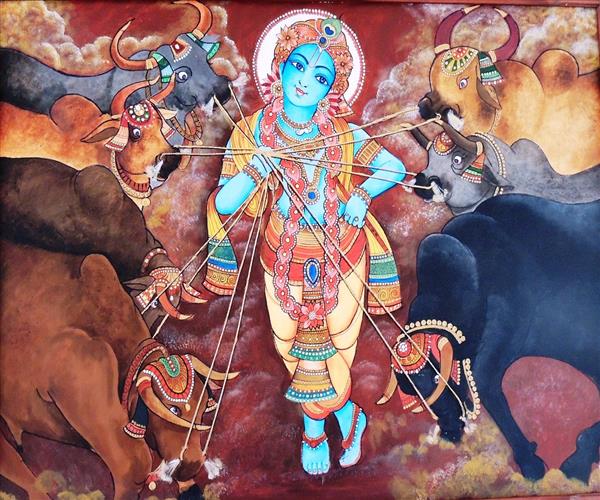The Vedas, the ancient sacred scriptures of Hinduism, comprise a vast body of knowledge that covers a wide range of themes and subjects. These texts, believed to have been revealed to ancient seers through divine inspiration, provide insights into the spiritual, philosophical, ritualistic, and social aspects of Vedic society. Although the Vedas consist of multiple texts, including the Rigveda, Yajurveda, Samaveda, and Atharvaveda, there are several major themes and subjects that are prevalent throughout.

Hymns of Devotion and Praise:
One of the prominent themes in the Vedas is the expression of deep devotion and praise to various deities. The hymns, known as mantras, extol the virtues, powers, and manifestations of gods and goddesses such as Indra, Agni, Varuna, and Soma. These hymns are filled with heartfelt adoration, seeking blessings, protection, and guidance from divine beings. Devotional hymns highlight the spiritual connection between humans and the divine realm, emphasizing the importance of reverence and gratitude.
Rituals and Sacrifices:
The Vedas provide detailed instructions and guidelines for performing rituals and sacrifices, known as yajnas, which were integral to the Vedic society. These rituals involved the offering of oblations, recitation of mantras, and the proper sequencing of actions. The Vedas contain hymns and rituals associated with various ceremonies, such as fire sacrifices (Agni yajna) and soma rituals. The rituals served as a means to establish a connection with the divine, seek blessings, and maintain cosmic order.
Cosmology and Creation:
The Vedas offer insights into the cosmological understanding of the ancient seers. They describe the creation of the universe, the celestial bodies, and the interplay of cosmic forces. Mythical hymns and narratives portray the cosmic battles, the emergence of gods and goddesses, and the cycles of creation and destruction. The Vedas contemplate the nature of existence and explore the relationship between the divine, the universe, and human beings.
Philosophy and Speculation:
Philosophical inquiries are also a significant aspect of the Vedas. They explore fundamental questions about the nature of reality, the purpose of life, and the nature of the self. Philosophical hymns contemplate the concepts of dharma (righteousness), karma (action and its consequences), and atman (the individual self) as well as the ultimate reality, known as Brahman. The Vedas lay the foundation for later philosophical systems, including Vedanta, which delve deeper into these inquiries.
Social and Moral Principles:
The Vedas provide guidance on social conduct, moral values, and ethical principles. They contain hymns that emphasize the importance of truthfulness, honesty, compassion, and righteous behavior. The texts prescribe duties and responsibilities for individuals based on their societal roles, such as the duties of kings (Raja Dharma) and priests (Brahmana Dharma). The Vedas also address issues related to social harmony, justice, and the ideal social order.
Metaphysical and Symbolic Concepts:
Metaphysical and symbolic concepts are woven throughout the Vedas. The texts employ symbolism, allegory, and poetic imagery to convey deeper truths and abstract ideas. They use symbolic language to represent cosmic forces, rituals, and the relationship between the microcosm and macrocosm. The Vedas explore the connection between the external world and the internal spiritual journey, employing metaphors to convey profound insights.